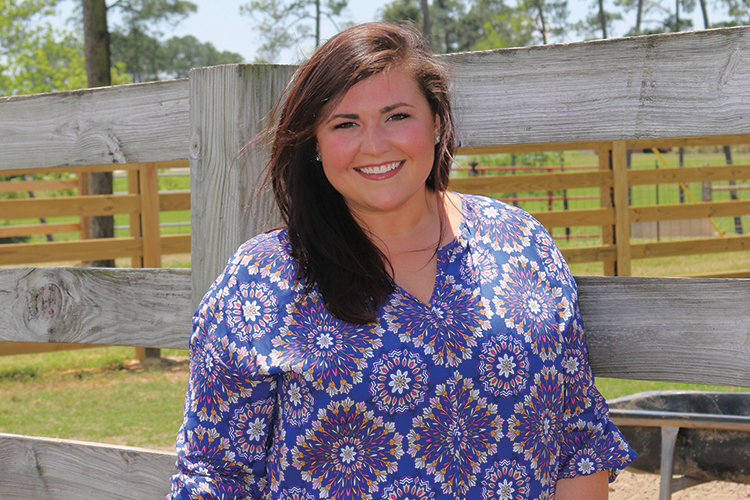Home > Georgia > Georgia Ag Education > Georgia Colleges are Cultivating the Next Generation
Georgia Colleges are Cultivating the Next Generation

Preparing the next generation for careers in agriculture is essential for the industry’s sustainability and viability. Fortunately, Georgia is home to nearly two dozen colleges and universities working diligently to equip students with skills they need in a variety of disciplines to produce the food and fiber of the future.
Abraham Baldwin Agricultural College (ABAC) in Tifton, for example, offers associate and bachelor’s degree programs in areas such as diversified agriculture, natural resource management, environmental horticulture and rural studies. The college also offers concentrations in agriculture-related fields, like ag communications and agribusiness.
“What we looked at when we created our four-year bachelor’s program was to try and design programs that would meet the needs of the employers in the Southeast region, and also prepare students to support the agricultural economy here in Georgia. When our students graduate, they’re prepared to go out and contribute to the profession in agriculture business, production and consulting, for example,” says Dean Dr. Jerome Baker, Abraham Baldwin Agricultural College.
Training from the Ground Up
Baker says ABAC students receive a comprehensive agriculture education with opportunities to specialize.
“They’re going to take a little bit of livestock production, a little bit of crop production, a little bit of ag engineering, a little bit of ag business. Then, as they finish that foundation set of courses, they’ll continue to take additional
coursework in a particular area,” Baker says. “If they want to go to graduate school, they might take more science and more math courses. I think because we give the student this foundation across crop, livestock, engineering and business, they’re prepared to do almost anything when they graduate.”
![GA ag education [INFOGRAPHIC]](https://eadn-wc01-4177395.nxedge.io/wp-content/uploads/2020/05/Screen-Shot-2016-09-19-at-10.41.59-AM.jpg) Recent ABAC graduate Kendall Singleton says she was drawn to the college because of its reputation for preparing students for a broad range of careers in agriculture.
Recent ABAC graduate Kendall Singleton says she was drawn to the college because of its reputation for preparing students for a broad range of careers in agriculture.
“I chose ABAC because I knew ABAC had a reputation in the agriculture community for producing very knowledgeable and ready-to-work students,” she says. “Agricultural education is vital in the world we live in. A society that is so far removed from agriculture but so very interested in how and where their food is grown is craving the information we as the agriculture industry have. I believe that agricultural education is a key component in introducing the next generation to the truth of how and where their food and fiber is produced. Supporting agricultural education programs is one of the most efficient avenues of generating knowledgeable consumers and productive members of society.”
Singleton says she plans to use her ABAC education to pursue a doctorate of veterinary medicine or graduate degree programs in reproductive physiology.
A Well-Rounded Education
At the University of Georgia College of Agricultural & Environmental Sciences, almost a third of the college’s students go on to graduate or professional school.
“Because we have such a strong base in science and mathematics, our students are really prepared for any areas of applied science, health and business,” college Dean Sam Pardue says. “Many of them will be involved to some degree in the agricultural field, but others will go into other fields, for example, finance, where they become involved in loan programs that are structured around agriculture.” Pardue says agricultural sciences and business degrees have become increasingly popular in recent years with the country’s growing emphasis on environmental sustainability, genetics and genomics, food science, and food industry marketing.
“One of the things that makes Georgia outstanding in educating a new generation of agricultural entrepreneurs and leaders are the diverse options available for all different types of students and student needs. There is a plethora of jobs available – with good salaries – and the state’s institutions are readying students for these jobs,” Pardue says.



